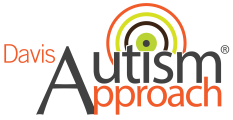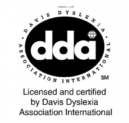Do I Need a Formal Diagnosis?

Do you remember the first time your baby was sick? Chances are you were worried and called the pediatrician for the soonest possible appointment. We call the Dr. because they are the experts and they can tell us what is wrong and how to proceed. When we know what the illness is we then know how to treat it. What about when our children are struggling in school? Who do we turn to then? Teachers? The Special Education Department? Medication? Tutors? Specialized Learning Centers? The answer isn’t always black and white.
During my son’s 2nd grade year I had several people telling me that they believed him to have many different learning disabilities. ADD, Irlen Syndrome, Dyslexia, and Language Processing Disorder were only a few of the labels thrown at us. Each time I heard a new one I would spend days researching the disorder or disability looking for answers. Differentiating one from the other proved frustrating as the symptoms for each are very similar and many, in fact, overlap. Knowing which direction to go was a challenge and understanding which, if any, of these “disabilities” he had, was its own obstacle. I felt hopeless and confused. I felt that if my son had a diagnosis we’d then know exactly what we were up against and we could move forward but I also struggled with the stigma that comes along with a label. Did I want my son to be looked at differently or talked about as “that kid with….”? And after the diagnosis then what? Special Education? Medication? To say that I was overwhelmed is an understatement.
In the end, I did choose to have my son tested to see if he had a learning disability. As parents, we do what we believe is in the best interest of our children. To test or not to test is one of those parenting forks in the road, neither is the “right” or “wrong” path, each is simply a choice we make because we believe it to be in the best interest of our child.
Below you will find an excerpt from a fellow Davis Facilitator’s blog. I hope that if you find yourself in the pickle “to diagnose or not to diagnose”, my post, as well as the following info, will be useful on your journey.
When a diagnosis may be needed
An official diagnosis is typically appropriate if you are looking to:
- Qualify for accommodations/special education programs in public schools (inquire with the school system prior to seeking private testing, as you are legally entitled to request evaluation through the school district)
- Receive accommodations for work/employment
- Obtain proof of a disability for legal purposes
- Qualify for public services or disability services
Reasons not to seek a diagnosis:
- In many/most cases, insurance will not cover diagnostic testing, which can cost several thousand dollars to administer. If the reasons listed above are not present in your situation, or if you are on a tight budget, it might make more sense to use the money for a solution.
- You are not seeking accommodations or public/employment support.
- You do not want a “label” applied to you or your child, or to have that information on record (for whatever reason).
- You already KNOW you are dealing with Dyslexia – whether it be a clear cut case or family history.
- You want to handle the situation outside of the school setting – perhaps you have tried their programs and decide to try something different. If you are not requesting financial assistance from the school system, a diagnosis may not be necessary.
Tips if you do want a diagnosis:
- Be sure to ask specifically for Dyslexia testing. Believe it or not, there are no uniformly accepted criteria for diagnosing Dyslexia, so testing and diagnosis can be subjective. Professionals may disagree on whether or not a person is dyslexic, and/or use alternative diagnostic labels to describe your/your child’s symptoms. Many will not use the word “Dyslexia” at all. There are more than 70 different diagnoses that can be used to describe the various manifestations of dyslexia symptoms. Therefore, if you are specifically looking for a Dyslexia diagnosis, be sure to request that they use that term should the symptoms be identified.
- Before having the diagnostic testing done, be sure that the school/university/employer will accept third-party testing, will honor the outcome, and employ accommodations and recommendations based upon it.
*Used with permission from www.ne-dyslexia.com
In the end, each situation is unique and each family has to make the decision that works best for them. It was after my own son’s diagnosis and Davis Dyslexia Program that I became passionate about helping other families and became a licensed Davis Facilitator. I now work with individuals with and without an official diagnosis, the program outcome is the same either way.
I regularly get phone calls asking if I can provide an official diagnosis for dyslexia or ADD/ADHD or if a diagnosis is needed for the programs provided at Rio Grande Learning Solutions, LLC. My reply usually goes something like this:
At RGLS we provide a thorough screening for Dyslexia, but do not provide an official diagnosis. The assessment will determine if the client exhibits the signs and characteristics of Dyslexia and is a suitable candidate for our programs. If your primary goal is to find out in great detail what is going on in your child’s brain, testing is the way to get that information. But, if your priority is to get your child reading and learning in a way that makes sense to them then I can help! As a result, you can save you and your child time and frustration and start celebrating their improvement! Start getting help now and get a diagnosis later if you feel it’s still necessary.
What are the signs and symptoms? Online you can find many dyslexia screening sites or lists of common characteristics and symptoms. Like this free screening is it Dyslexia quiz. It is confidential and you will be sent an email after the short quiz with results.
There is also a list of common dyslexia characteristics here: http://www.riograndelearningsolutions.com/characteristics/
And adult common characteristics here
Read my son’s story Dyslexia. A story with a happy ending.
*Rio Grande Learning Solutions provides a thorough screening for Dyslexia but does not provide an official diagnosis. The assessment will determine if the client exhibits the signs and characteristics of Dyslexia and is a suitable candidate for our programs.
**An official diagnosis is NOT necessary to participate in the programs provided by Rio Grande Learning Solutions.**



